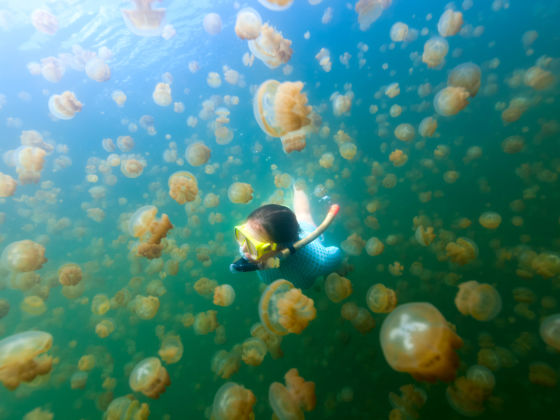Jellyfish are usually a downer to all those who love wild swimming, but in the saltwater lake on Eil Malk Island in the Pacific country of Palau, the golden jellyfish are the reason visitors come in droves. Since the golden jellyfish in this lake have no natural predators, they have lost the evolutionary ability to sting, making it a perfectly safe (and very cool) swimming destination for tourists.


Palau’s Jellyfish Lake Has Just Reopened to Visitors
But, in 2016, due to an extremely worrisome decrease in the golden jellyfish population, beautiful and unique Jellyfish Lake wasoo closed to visitors. The lake was traditionally home to an average of 8 million jellyfish, but a drought triggered by the ocean-warming effects of El Niño had caused the population to severely decline to 600,000 in 2016.
Ongoing monitoring by the Coral Reef Research Foundation, however, has found that the population is rebounding, and the lake is once again suitable for visitors.
According to a government statement, the lake now has “sufficient numbers of jellyfish to provide visitors with a quality experience.” While the lake may be open again, management will still be closely monitoring the site, and taking measures to ensure the protection of the jellyfish. A permit will also be required of tourists wishing to swim in the lake.
Palau’s effort to revitalize its natural environments isn’t just limited to Jellyfish Lake. In November 2018, the government banned sunscreens that are harmful to coral reefs; and the import and sale of all reef-toxic sunscreens on the island will be prohibited starting January 1, 2020. Palau also requires visitors to sign a pledge when they arrive on the island, promising to behave responsibly toward the country’s natural and cultural heritage.
H/T: Lonely Planet